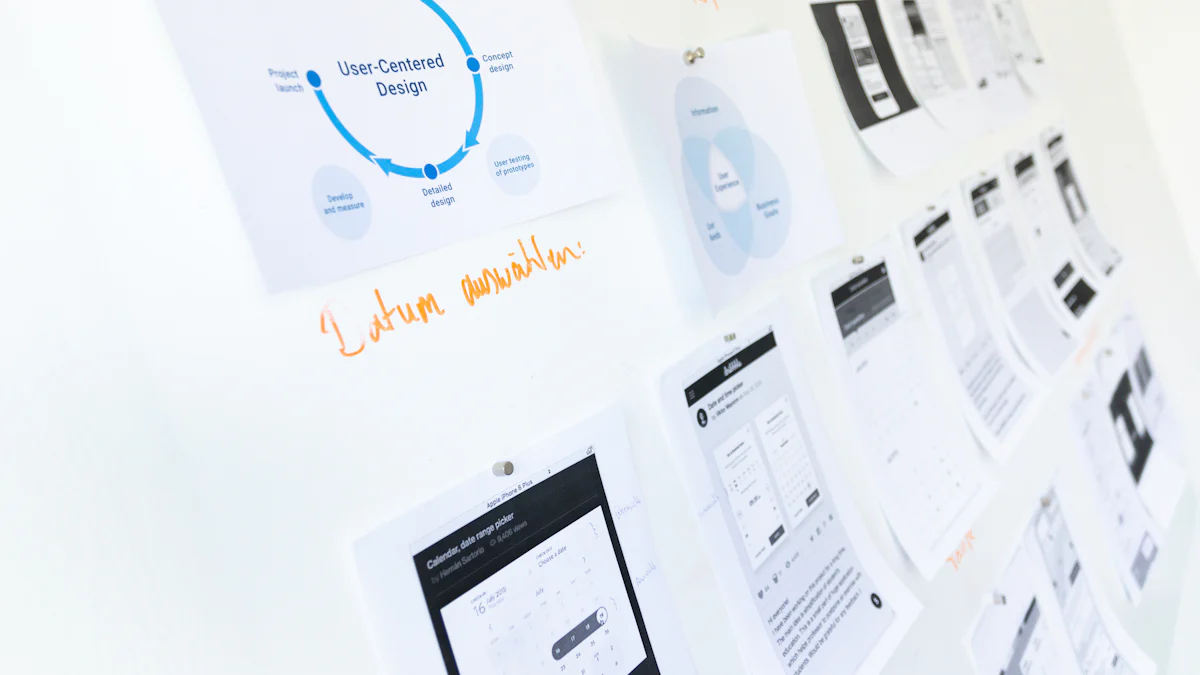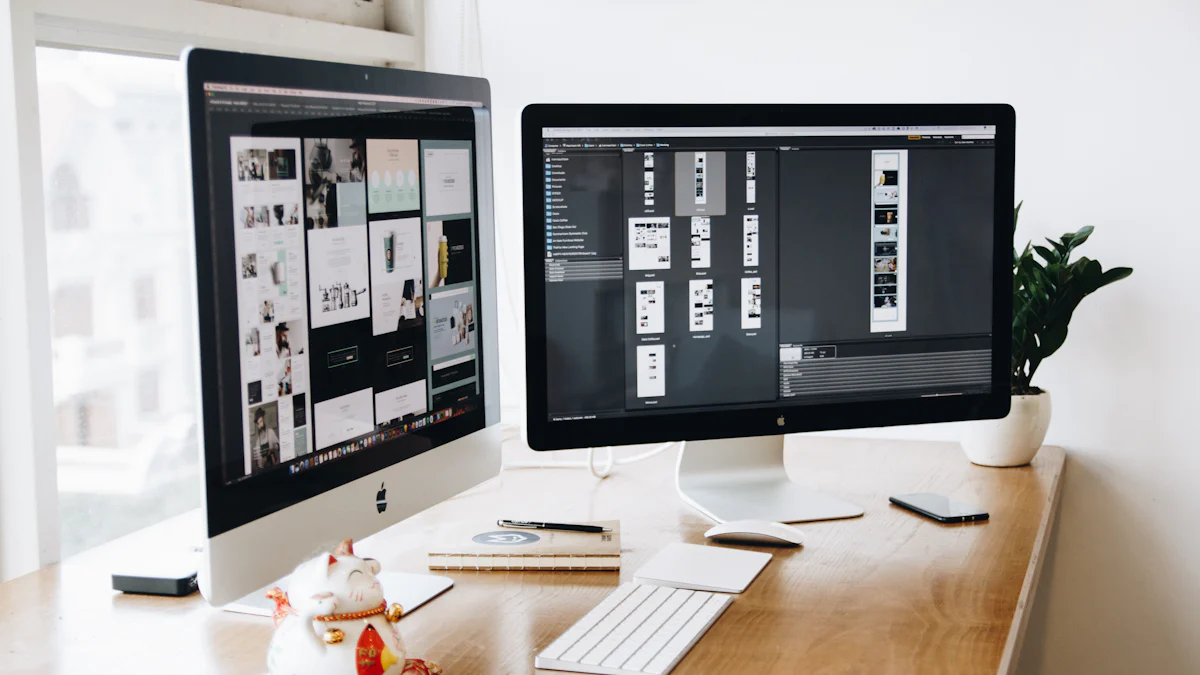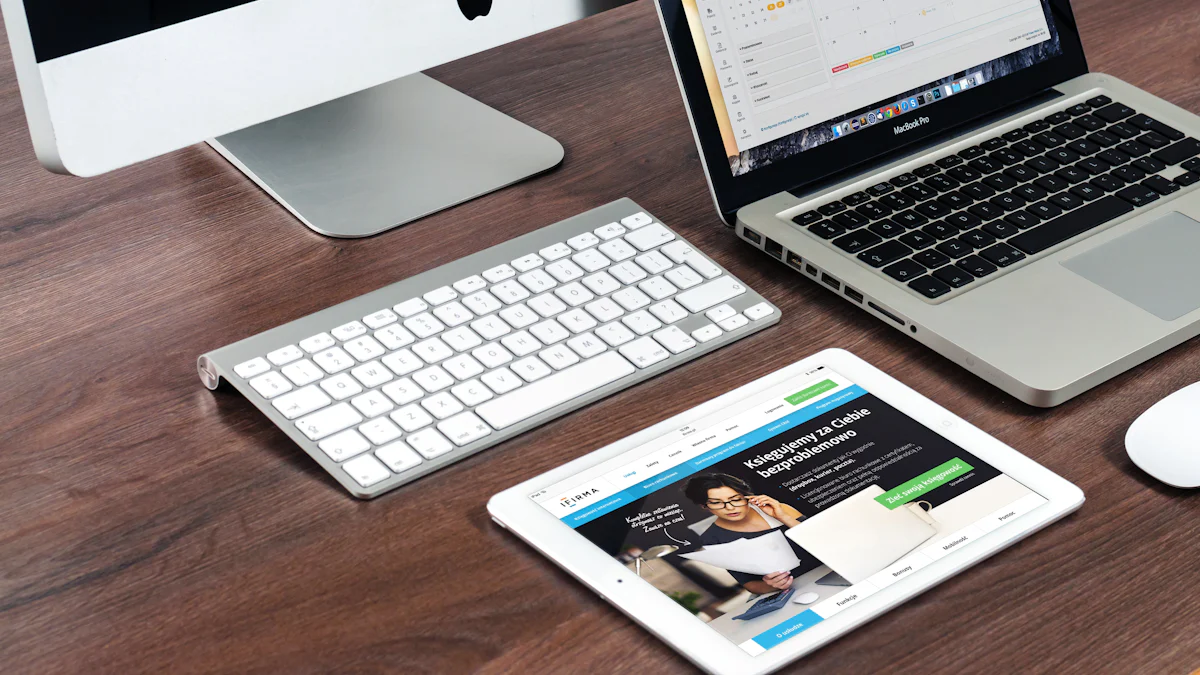Guide to Hiring the Right Website Designer

A well-designed website can make or break your business. Around 75% of people form opinions about a company based on its website design. A clean and mobile-friendly layout attracts more visitors. People love easy navigation, with 72% preferring mobile-friendly designs. Clixoni understands the importance of ongoing brand building. Clixoni supports businesses in creating engaging websites. You need to hire someone to build a website that reflects your brand's essence. Clixoni offers the expertise to ensure your website stands out. Trust Clixoni to elevate your online presence.
Define Your Needs and Preferences
Identify Your Website's Purpose
Determine the primary goals of your website
Every website needs a clear purpose. Think about what you want your website to achieve. Do you want to sell products, share information, or connect with customers? Each goal requires a different approach. A business website might focus on sales and customer interaction. A blog might aim to inform and engage readers. Identifying these goals helps shape the design and content.
Consider the target audience
Understanding your audience is crucial. Who will visit your website? What are their interests and needs? Knowing your audience helps tailor the website to meet their expectations. A website for teenagers might use vibrant colors and interactive features. A site for professionals might focus on sleek design and easy navigation. Consider age, interests, and online behavior when designing your site.
Decide on Design and Functionality
Choose a design style that aligns with your brand
Your website should reflect your brand's personality. A consistent design builds trust and recognition. Think about colors, fonts, and images that match your brand. A playful brand might use bright colors and fun graphics. A luxury brand might opt for elegant fonts and high-quality images. Consistency in design creates a cohesive experience for visitors.
List necessary features and functionalities
Identify key features your website needs. An e-commerce site might need a shopping cart and payment gateway. A blog might require comment sections and social sharing buttons. Make a list of must-have features. Prioritize functionality that enhances user experience. A balance between design and functionality ensures a user-friendly site. Remember, a visually appealing site should also be easy to navigate.
Search for Potential Designers

Where to Find Designers
Online platforms and portfolios
You can find talented website designers on various online platforms. Websites like Upwork, Fiverr, and Freelancer offer a wide range of professionals. These platforms allow you to view portfolios and read reviews from previous clients. You get a sense of the designer's style and capabilities. Portfolios showcase the designer's past work and creativity. You should look for designs that align with your vision. A well-curated portfolio reflects the designer's attention to detail and expertise.
Recommendations and referrals
Ask friends or colleagues for recommendations. Personal referrals often lead to reliable and skilled designers. You trust the opinions of people you know. They provide honest feedback about their experiences. A recommended designer has proven their abilities to others. This gives you confidence in their work. You can also join online forums or groups related to web design. Members often share valuable insights and recommendations.
Evaluate Their Work
Review their previous projects
Take time to review the designer's previous projects. Look at the variety and complexity of their work. A diverse portfolio indicates versatility. You want a designer who can adapt to different styles. Pay attention to the functionality of their designs. A visually appealing site must also be user-friendly. Check if their designs are responsive and mobile-friendly. This ensures a seamless experience for all users.
Check client testimonials and reviews
Client testimonials provide insight into the designer's professionalism. Positive reviews highlight strengths and reliability. For example, Diana Paguaga praised Freshy for their attention to detail and customer service:
"Vincent and the entire Freshy team were amazing to work with. Their attention to detail and their impeccable customer service made it a pleasure to design my website."
Testimonials like these show a commitment to quality and client satisfaction. You should look for consistent positive feedback. This indicates a strong track record of successful projects.
Hire Someone to Build a Website

Conduct Interviews and Assess Compatibility
Prepare Interview Questions
When you want to hire someone to build a website, start by preparing solid interview questions. Good questions help you understand the designer's skills and approach. Ask about their favorite projects. Find out what they learned from those experiences. This reveals how they handle challenges and adapt to different styles.
Ask about their design process
Understanding the designer's process is crucial. Ask them to explain their design steps. Do they start with sketches or digital mockups? How do they incorporate feedback? A clear process shows organization and professionalism. You want someone who can turn ideas into reality smoothly.
Inquire about their experience with similar projects
Experience matters when hiring a designer. Ask about projects similar to yours. Have they worked on e-commerce sites or blogs before? Experience with similar projects means they know what works and what doesn't. This ensures your project benefits from their past successes.
Assess Communication and Collaboration Skills
Evaluate their responsiveness
Communication is key in any project. Test the designer's responsiveness during the interview. Do they reply promptly to emails or messages? Quick responses show commitment and reliability. You need someone who values your time and keeps you updated.
Determine their willingness to collaborate
Collaboration leads to better results. Ask about their teamwork experiences. Do they enjoy working with clients and other team members? A collaborative designer listens to your ideas and offers valuable input. This partnership creates a website that truly reflects your vision.
Negotiate Terms and Finalize the Contract
Discuss Project Scope and Timeline
Agree on deliverables and deadlines
You need to agree on what the designer will deliver. Make a list of everything you want on your website. Include pages, features, and design elements. Clear deliverables help avoid misunderstandings. Set deadlines for each part of the project. Deadlines keep the project on track. A timeline helps you see when you can expect each part to be done.
Set expectations for revisions and feedback
Revisions are a normal part of the design process. You should set clear expectations for how many revisions you can request. Decide how long the designer has to make changes. Feedback is important for getting the design right. Plan regular check-ins to discuss progress. These meetings ensure that the project meets your vision.
Understand Pricing and Payment Terms
Clarify the cost structure
Understanding the cost structure is crucial. You need to know if the designer charges by the hour or by the project. Ask about any additional fees. Some designers charge extra for revisions or special features. Knowing the total cost helps you budget effectively. A clear cost structure prevents surprises later on.
Discuss payment schedules and methods
Payment schedules outline when you pay the designer. Some projects require a deposit upfront. Others may have payments at different stages of completion. You should agree on a payment method. Options include bank transfers, credit cards, or online payment platforms. A clear payment plan ensures a smooth transaction. Both parties benefit from knowing when and how payments occur.
Tip: Always read the contract carefully. Look for clauses about intellectual property rights. Ensure that you own the final design. A well-written contract protects both you and the designer.
A structured hiring process ensures you find the right website designer. This approach saves time and avoids costly mistakes. Collaboration with your designer leads to a successful website. Regular communication keeps the project on track and aligns with your vision. Clixoni offers support in brand building and website management. Clixoni's expertise helps elevate your online presence. Trust Clixoni to transform your digital strategy. A well-designed website attracts visitors and boosts business growth. Embrace the journey of creating a standout website with the right partner by your side.
See Also
Top 5 Services Offered by Stockport Website Designer
Unlock Business Potential by Outsourcing Your Website
Essential Lead Magnets to Boost CRM Strategy for Businesses

